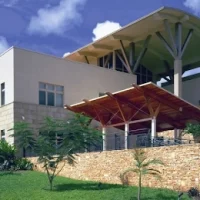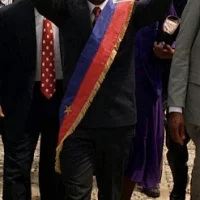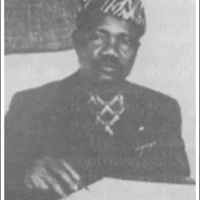Afghanistan has had a long history of living under foreign rule. Once a protectorate of the British Empire, Afghanistan became fully independent in 1919, but its vulnerable monarchy led by King Zahir Shah was unable to unite the country’s many ancestral tribes into a central government. This set up the conditions for internal political instability. The monarchy… Read More " The Afghan Revolution of 1978: Invitation to Invasion"
On April 6, 1994, the presidents of Rwanda and Burundi were assassinated when their plane was shot down near Kigali airport and crashed into the grounds of the Rwandan presidential residence. The incident ignited genocide by the majority Hutus against Tutsis and against those supporting peace negotiations to bring Rwanda out of civil war. An… Read More "Fleeing Rwanda to Survive, then Returning to Rebuild, 1994"
Mission Unspeakable: When North Koreans Tried to Kill the President of South Korea
On October 9, 1983, while South Korean President Chun Doo-Hwan was on a visit to Rangoon, Burma to lay a wreath at the Martyr’s Mausoleum of Swedagon Pagoda, a bomb concealed in the roof exploded, killing 21 people including four senior South Korean officials. President Chun was spared because his car had been delayed in… Read More "Mission Unspeakable: When North Koreans Tried to Kill the President of South Korea"
The Technology of Terror – South America in the 70s and 80s
Terrorism the world over poses a threat to the lives of Foreign Service Officers. Throughout the 1970s and 1980s terrorist groups threatened the safety of FSOs serving in South America. In Argentina, two such groups, the People’s Revolutionary Army (ERP) and Montoneros, resorted to armed resistance 1969-1970 in response to the regime of Juan Carlos… Read More "The Technology of Terror – South America in the 70s and 80s"
Diplomacy in Cold Blood: Fatal Encounters Around the World
An American citizen abroad accused of murder: this is a particular nightmare for consular officers. These cases can become public scandals and political quandaries, and it is the job of American Citizen Services to ensure that Americans accused of major crimes beyond U.S. borders receive appropriate treatment in accordance with international law. If an arrested… Read More "Diplomacy in Cold Blood: Fatal Encounters Around the World"
Haiti has long been plagued by coups d’état and regime changes, leading to long-time political instability and weak governance. In this volatile political field, it was easy for a Haitian leader to assume dictatorial powers, as was the case with President François Duvalier, also known as “Papa Doc.” After becoming the President of Haiti in… Read More "The Overthrow of Haiti’s Aristide"
Anatomy of an Overthrow: How an African Leader was Toppled
A council of combined security forces known as the Derg staged a coup d’état on September 12, 1974 against Ethiopian Emperor Haile Selassie I, arresting and imprisoning the monarch who had ruled for decades. The committee renamed itself the Provisional Military Administrative Council, took control of the government, soon abolished the monarchy and established Marxism-Leninism… Read More "Anatomy of an Overthrow: How an African Leader was Toppled"
Should I Stay or Should I Go? Evacuating Liberia, 1990
Being caught up in violent political upheaval and forced to evacuate is among the risks of diplomatic service, as at the U.S. Embassy in Monrovia in 1990 in what the Marines called Operation Sharp Edge. The problems started a decade before when a group led by Master Sergeant Samuel Doe staged a military coup in Liberia, toppling the… Read More "Should I Stay or Should I Go? Evacuating Liberia, 1990"
Naming Names: U.S. Embassy Jakarta and Indonesian Purges 1965-1966
An article by an American reporter alleged that the U.S. embassy in Jakarta played a role in the Indonesian massacres of 1965-1966 by supplying a list of known communists to Major General Suharto (seen right), whose forces then hunted them down and killed them. The violence began when Communist forces killed six of Indonesia’s senior… Read More "Naming Names: U.S. Embassy Jakarta and Indonesian Purges 1965-1966"
Throughout the 1970s, trouble was brewing in Chad. President François (N’Garta) Tombalbaye was the first president of Chad following its independence from France in 1960. His authoritarian regime became increasingly distrustful of and alienated from Chad’s military and Tombalbaye had jailed several prominent commanders. An insurgency in the north led by the Libyan-armed FROLINAT [National… Read More "A Front Row Seat to the 1975 Coup d’Etat in Chad"



